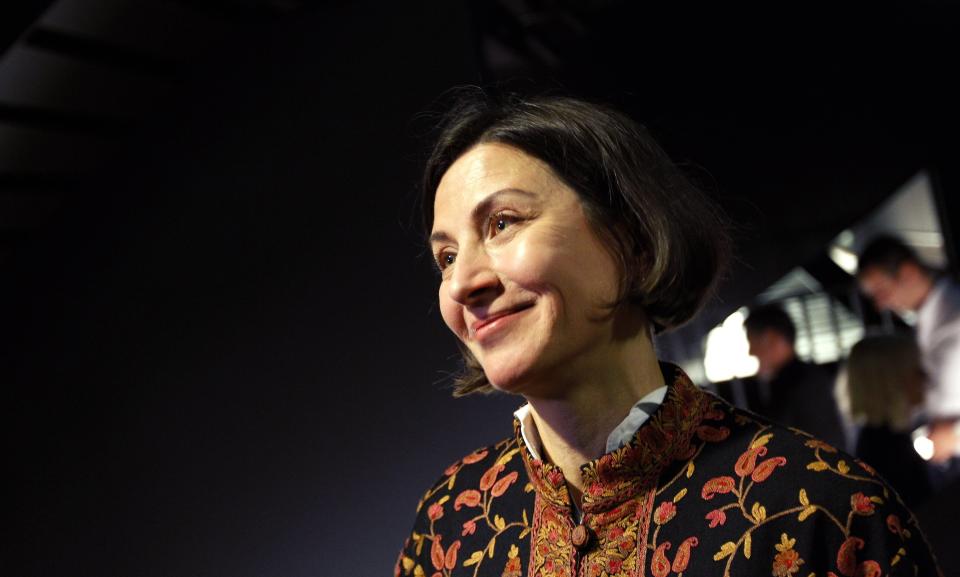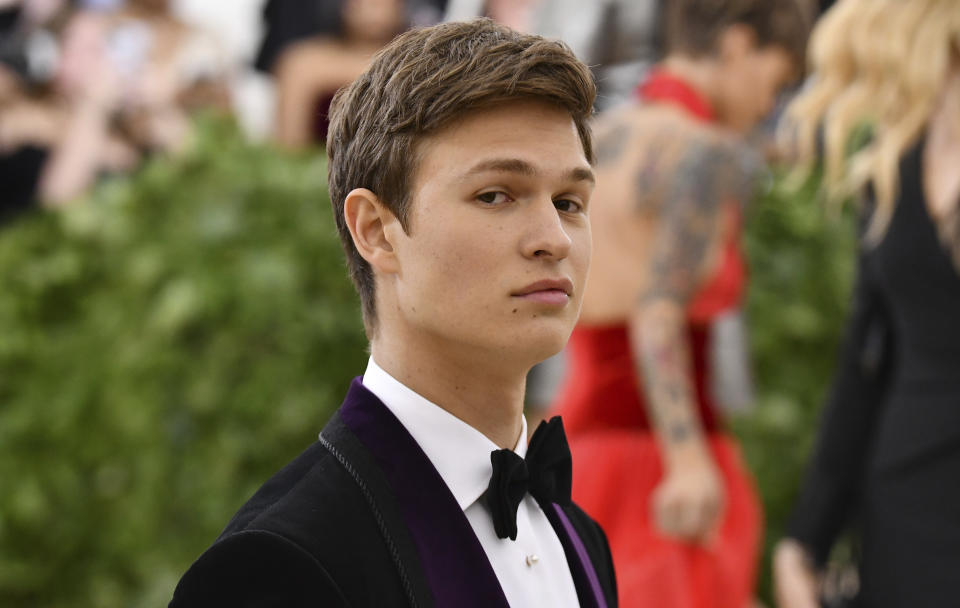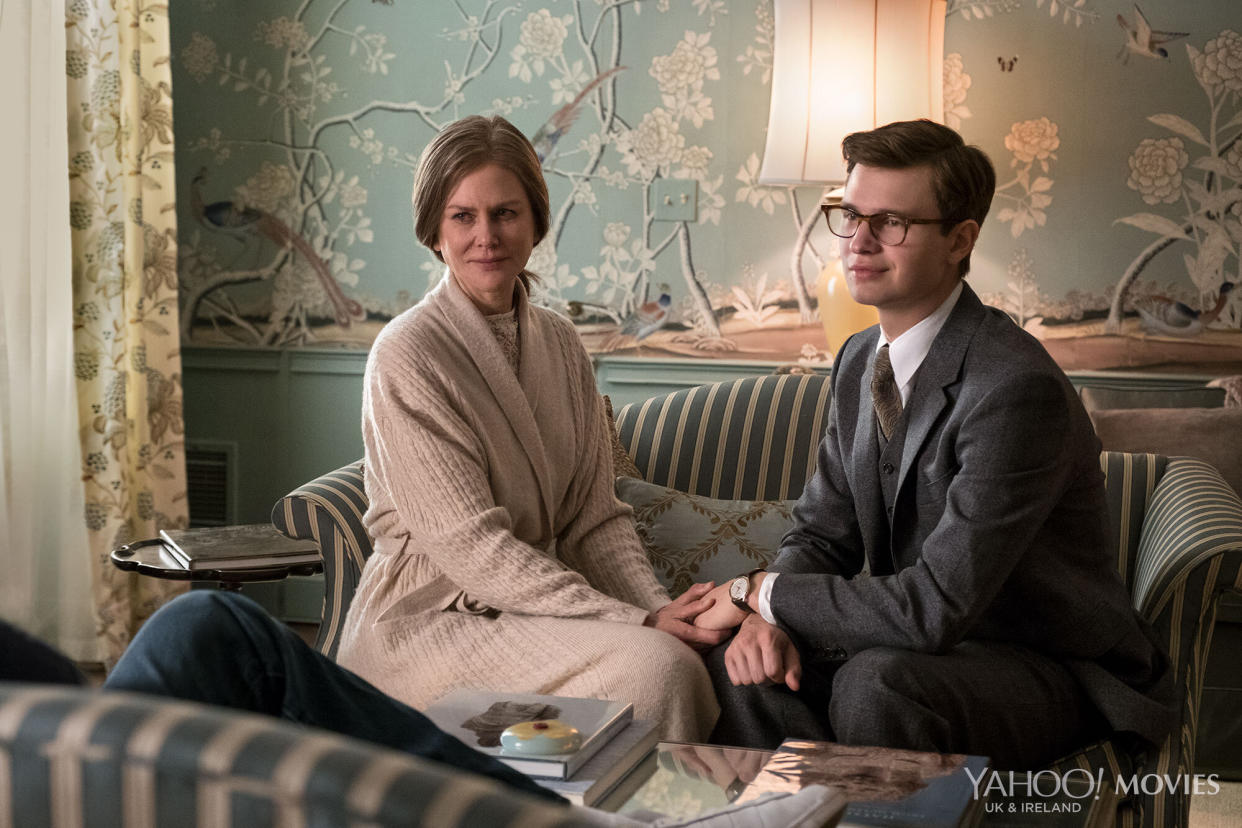'The Goldfinch' first look: Director John Crowley on adapting Donna Tartt's bestselling behemoth for film
How do you turn a beloved book that’s more than 800 pages long and won the 2014 Pulitzer Prize for Fiction into a coherent, enjoyable movie? And one that the novel’s passionate fans will appreciate, while also enticing moviegoers unaware of the source material?
That was the challenge facing director John Crowley, who took on the daunting task of adapting Donna Tartt’s award-winning bestseller The Goldfinch for the big screen (in cinemas 27 September).
The initial results can be seen in the first trailer, released tomorrow, which gives audiences a glimpse of Ansel Elgort as Theo, a young man who survives a terrorist attack in an art gallery which kills his mother and goes on a long journey of self-discovery, friendship, lies and deception (trust us, this guy is complicated).
“I’ve never had to do publicity for a trailer,” laughs Crowley, whose work includes Boy A, Martin McDonagh’s stage plays and 2015’s Oscar-nominated literary adaptation Brooklyn.
Read more: Things you never knew about Aladdin
“The initial decision to not follow the linear structure of the book, rather to intercut a little more cinematically, a little more impressionistically, that was the thing that liberated us and allowed us to deal with time passing and leave out chunks of the book which though beautiful and wonderful in their intentional setting were perhaps less dramatic,” he explains.
Unlike some authors who might have an opinion about how her work is adapted, Tartt didn’t seem to mind. In fact, Crowley only met her once before filming started and she never came to set. “She was busy,” he laughs.

The end result is a focus on two specific timeframes – one when Theo is 14, loses his mother and is sent to live with another family (led by matriarch Nicole Kidman), before being whisked away to Las Vegas by his feckless father. The action then jumps forward a little over a decade, when, as Crowley puts it, “the tissue of lies that his life has become is beginning to unravel or is beginning to be put under pressure and his big secret is about to be revealed.”
“They were the two most dramatic sequences of the story overall that we were able to focus on.”
For anyone not familiar with the story, a short synopsis is pretty much impossible. In the carnage following the explosion, Theo steals a famous painting, the titular Goldfinch. This dishonest moment clouds his life, as he falls in and out of love, gets embroiled in the world of antiques fraud, becomes addicted to drugs and perhaps most importantly, befriends a young tearaway called Boris (played as an adult in the movie by Dunkirk star Aneurin Barnard and as a child by Stranger Things’ Finn Wolfhard).

In fact, it’s this relationship which has caused some of the most fervent discussions amongst fans, some of whom argue the pair have a sexual connection. Crowley is clear where the film version stands.
“I think it’s reductive to say it’s a homosexual relationship, it’s not quite what she’s written,” he says. “What it is is you’ve got these kids who aren’t quite formed who are a bit messy and there are a lot of drink and drugs.”
He points to the fact they’re not attracted to each other when they meet again as adults.

“The big, transformative emotion in this book and maybe in a lot of Donna’s other writing is friendship,” he continues. “I don’t mean that in a sentimental way, I mean that in a complex way. I think it’s a mistake to confuse that with a sexual element and it’s certainly not what we leant into. What we leant into was the bond that happens between these two slightly lost kids in this strange suburban environment.”
Casting a sprawling story like this is a particular challenge, especially when you have two time periods featuring the hero and he has to be played by two different actors. Crowley chose not to pick two lookalike performers who would mimic each other and in the end plumped for Oakes Fegley (Pete’s Dragon) as young Theo and The Fault in Our Stars’ Ansel Elgort for the adult role.
“What you’re like when you’re 14 is not what you’re like when you’re 25. That was very interesting to me, what the passage of time does to people,” says Crowley. “Ansel had a wonderful held-in quality about him which was slightly mysterious. He’s a really interesting young actor – I loved him in Baby Driver.”

“And then,” he adds, “I had great hair and make-up departments who worked incredibly hard to make the cosmetic elements truthful and real and make them feel like one would be the outgrowth of the other one.”
Because of its source material and the presence of supporting actors like Kidman and Jeffrey Wright, the movie is bound to create awards chatter, something Crowley is used to after Brooklyn, which was nominated for three Oscars and won the BAFTA for Best British Film.
Read more: Arnie schools sexist Terminator fan
“You’re aware of it because people make you aware of it,” admits the director. “Nothing in what you’re asking me informs the making of it or is really relevant to how I want it to play in front of audiences. If any of that stuff happens, I have no problem with it! For me, I love the book and really wanted to see if there was a way of finding an exciting cinematic form that would express the essence of it and then sharing it.”

And is he worried about message boards laden with irate fans accusing him of ruining their beloved tale or cutting their favourite characters?
“I think we didn’t do so bad on the scoreboard of beloved characters in there so I’m optimistic that fans of the book won’t be outraged that we have done anything wrong,” he says. “You sort of have to lean in to what you loved about the book as a reader and carry that with you and hope that’s something that other people will respond to as well… You have to try and make the film.”
The Goldfinch is coming to cinemas on 27 September, 2019.

 Yahoo Movies
Yahoo Movies 

